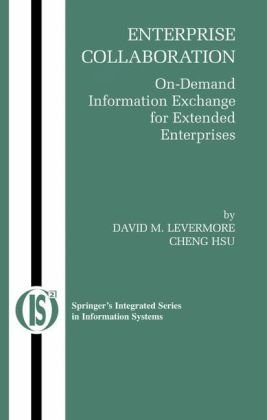

Most ebook files are in PDF format, so you can easily read them using various software such as Foxit Reader or directly on the Google Chrome browser.
Some ebook files are released by publishers in other formats such as .awz, .mobi, .epub, .fb2, etc. You may need to install specific software to read these formats on mobile/PC, such as Calibre.
Please read the tutorial at this link: https://ebookbell.com/faq
We offer FREE conversion to the popular formats you request; however, this may take some time. Therefore, right after payment, please email us, and we will try to provide the service as quickly as possible.
For some exceptional file formats or broken links (if any), please refrain from opening any disputes. Instead, email us first, and we will try to assist within a maximum of 6 hours.
EbookBell Team

5.0
78 reviewsCollaboration is a "watch word" and a recognized outcome of the increasing integration in business and industry. The Industrial Revolution brought us "standardization" and as it continues to evolve, "standardization" has widened into the concept of "rationalization." In recent times, "flexibility" has been added to the evolving nature of industry, which includes such developments as flexible manufacturing, CIM, concurrent engineering, supply chain management, etc. But the next step in this evolutionary process is developing out of the newly IT-enabled practices such of E-business, E-engineering, and on-demand business and it is these IT-enabled practices that brings the concept of "collaboration" to the next level of industrial evolution. "Collaboration" here means cooperation among independent enterprises towards some common tasks and even cooperation among distributed systems and processes within the same enterprises. There are some complex organizational and technical forces behind the emerging momentum of Enterprise Collaboration: (1) From the organizational perspective, no single authority can command and control all the participants as the scope of integration grows exponentially across the world economy. (2) From the technical perspective, the scale and complexity of tasks are exceeding the limits of the traditional command-and-control approaches to integration. These are the factors leading to the emergence of a model of collaboration to achieve the goals of integration for enterprises and extended enterprises.
The book will go beyond the discussion of global databases and present a general Enterprise Resources Market model to facilitate the management and integration of enterprise information resources in a cooperating mode. The bulk of the book will discuss this particular concept in depth and implement a general model to focus on a new publish-and-subscribe model for information resource owners to cooperate at a scale much larger than the traditional global query.